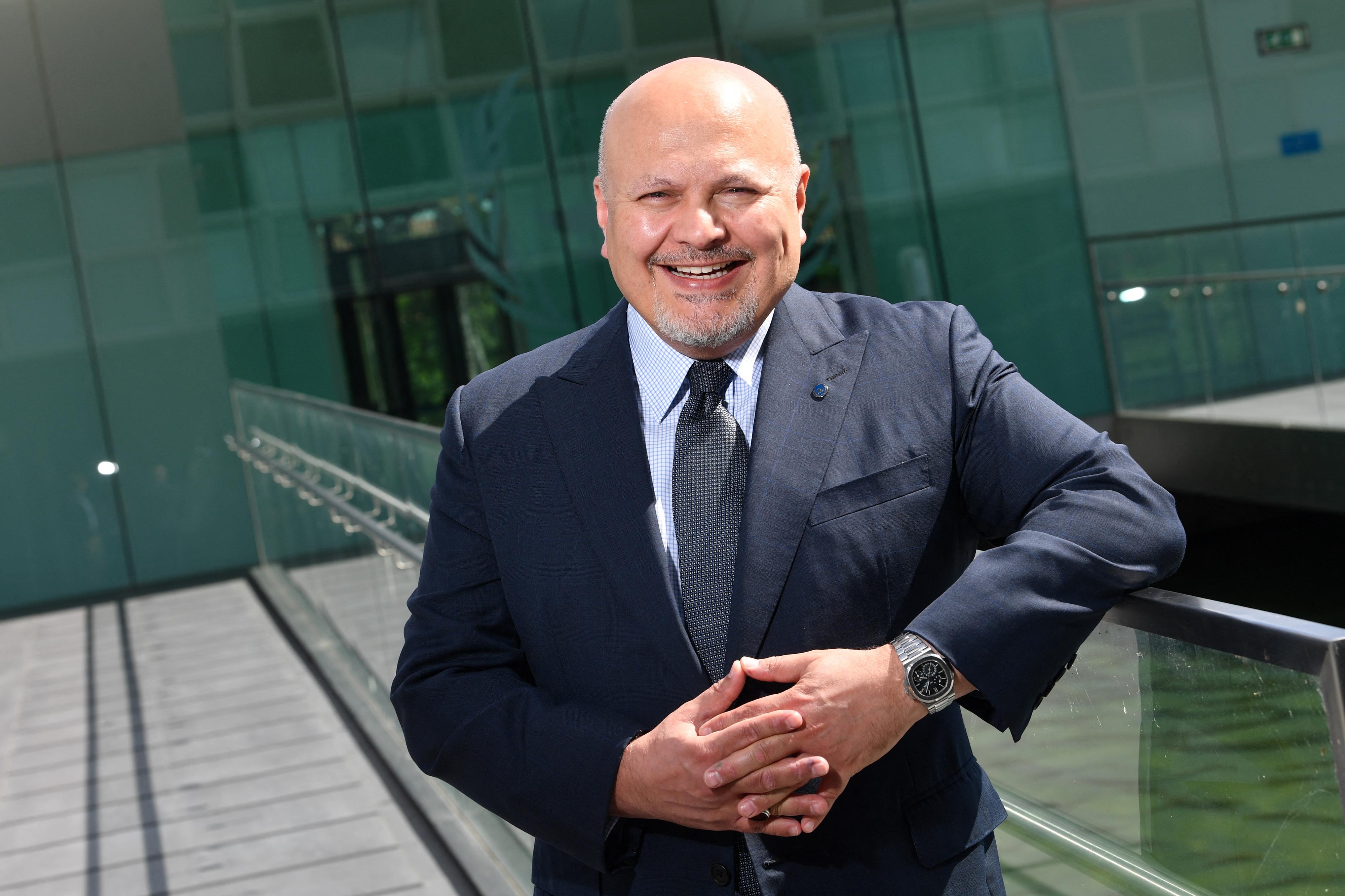Prime
ICC prosecutor visits Uganda ahead of Kony trial in absentia

In this file photo taken on May 27, 2022 chief prosecutor of the International Criminal Court (ICC) Karim Khan poses for a picture at the ICC headquarters in The Hague. PHOTO/AFP
What you need to know:
- In 1987, Kony launched a civil war against Kampala basing it in the northern part of the country where hundreds of thousands of civilians were killed, abducted, raped, maimed and others displaced from their homes for more than two decades.
The chief prosecutor of the International Criminal Court (ICC), who recently brought charges against Joseph Kony, the elusive leader of the Lord’s Resistance Army (LRA), is now visiting the country. During the visit, they are anticipated to hold discussions with various leaders, including President Museveni.
Government spokesperson Ofwono Opondo told Sunday Monitor that ICC prosecutor Karim AA Khan KC will meet the director general of the External Security Organisation (ESO) Joseph Ocwet, Attorney General Kiryowa Kiwanuka and President Museveni during his visit to Uganda.
Last week, Mr Khan met with Justice minister Norbert Mao during his official visit at The Hague-based court.
On July 29, 2004, the ICC opened an investigation into alleged crimes against humanity and war crimes within the jurisdiction of the court committed between July 1, 2002 and December 31, 2005.
On May 6, 2005, the ICC issued warrants of arrest against members of the top LRA leadership—Raska Lukwiya, Okot Odhiambo, Vincent Otti, Dominic Ongwen, and Joseph Kony—for their role in the gross violations of human rights, including sexual and gender-based crimes and crimes against the people in northern Uganda.
Proceedings against Raska Lukwiya, Okot Odhiambo and Vincent Otti were terminated following their deaths. Only Dominic Ongwen has been successfully prosecuted and convicted for 61 counts, comprising crimes against humanity and war crimes. On May 6, 2021, Mr Ongwen, was sentenced to 25 years of imprisonment. On December 15, 2022, his conviction and sentence were affirmed on appeal.
Currently, Joseph Kony, the leader of the LRA, remains at large. He is the only remaining suspect in the situation in Uganda. It is not clear whether Mr Kony is still alive or dead.
In December, Mr Karim announced that the ICC would not pursue any new cases of possible war crimes in Uganda, but would continue the case against Mr Kony.
According to prosecution’s submission of the document containing the charges, Kony is suspected of 36 counts of war crimes and crimes against humanity, allegedly committed between July 2002 until December 31, 2005.
Since the issuance in 2005 of the arrest warrant against Kony, the ICC has been seeking the cooperation of all relevant national authorities to arrest and surrender him to court.
A joint United States and Uganda military operation to arrest Kony was called off in 2017 with both parties saying he was no longer a threat. The US has already put a $5 million bounty on Kony’s head.
In 1987, Kony launched a civil war against Kampala basing it in the northern part of the country where hundreds of thousands of civilians were killed, abducted, raped, maimed and others displaced from their homes for more than two decades.
Prosecutions against Kony
The accusations against Kony involve collaborating with other members of the LRA to carry out a series of egregious acts. These alleged crimes took place during various attacks, including those on the Lwala Girls School and several internally displaced persons’ camps between June 2003 and June 2004.
Kony is also charged with committing similar crimes against numerous women and children associated with the LRA between July 2002 and December 2005, including enslavement, sexual slavery, rape, forced marriage, forced pregnancy, and other forms of abuse, amounting to persecution based on gender and age. He is also accused of forcibly conscripting children into the LRA and involving them in armed conflict, among others.




